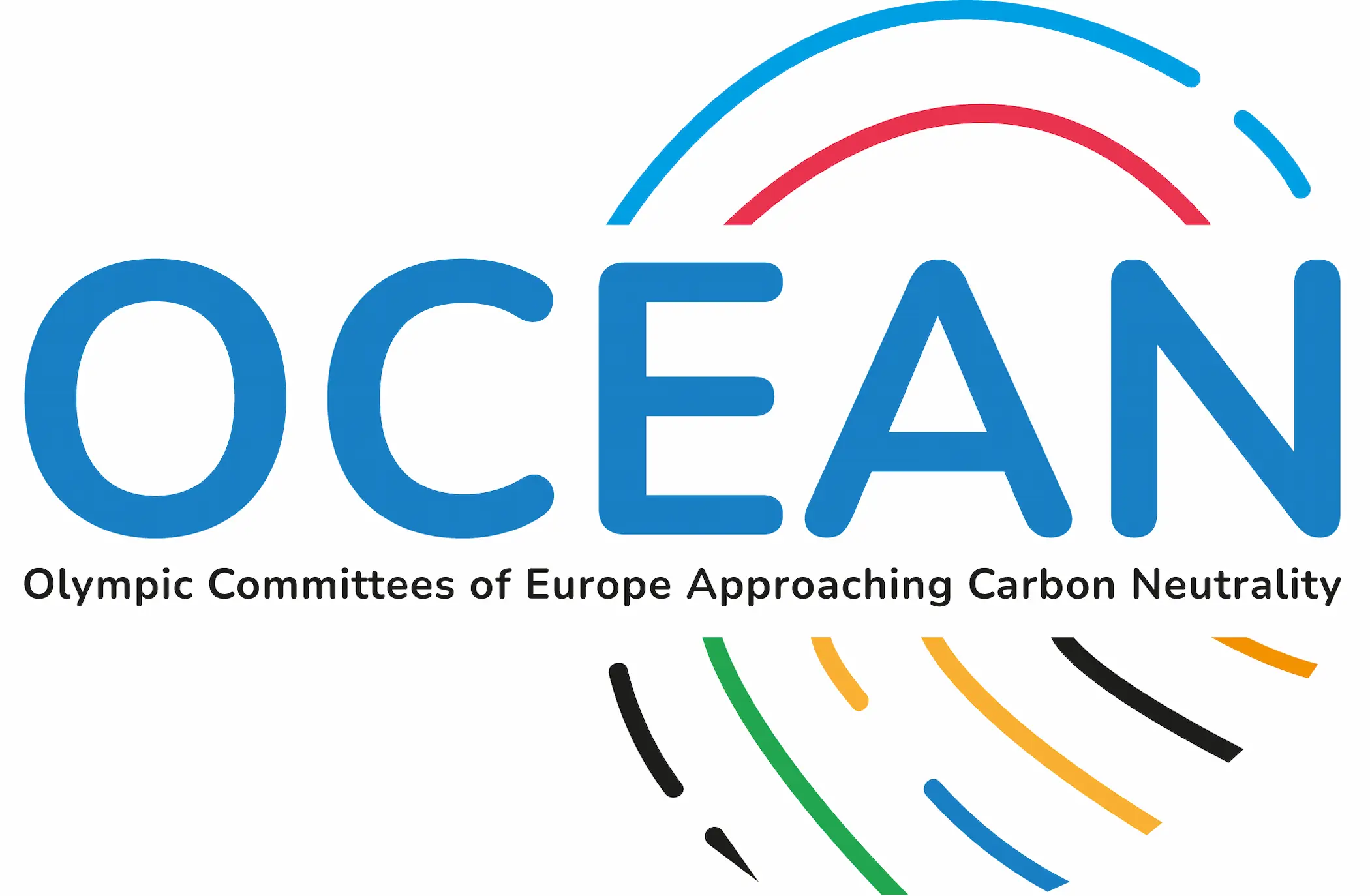On 13 May 2025, the European Olympic Committees (EOC) EU Office hosted the Final Conference of the OCEAN Project in Brussels, bringing together more than 100 representatives from sport organisations, sustainability experts, Olympic stakeholders, and European institutions. This high-level event marked the culmination of over two years of collaborative work to support the sport sector in addressing the climate crisis and to equip sport organisations with the tools and knowledge necessary to measure and reduce their carbon footprint.

Launched in 2022, the OCEAN Project was coordinated by the EOC EU Office and implemented in partnership with the International Olympic Committee (IOC), the Association of National Olympic Committees (ANOC), and the Öko-Institut as scientific lead. At the heart of the initiative was the mobilisation of 18 National Olympic Committees (NOCs), whose Climate Action Officers were trained and supported in the development of tailored carbon reduction strategies.
The Final Conference provided an opportunity to present the key outputs developed throughout the project and to reflect on the journey undertaken by participating NOCs. Moderated by Maya Djuric (NOC Bosnia and Herzegovina), a panel discussion with representatives from Czechia, Denmark, Luxembourg, Slovakia, and Slovenia offered insight into the experience of Climate Action Officers and the concrete progress made across Europe. Their contributions highlighted both the complexity and the potential of driving climate action in sport settings, especially when supported by targeted tools and guidance.
A major highlight of the conference was the official launch of the OCEAN Sport CO₂ Calculator, the first global, free-of-charge carbon calculator developed specifically for sport organisations. Created by the Öko-Institut in collaboration with sport actors, the calculator enables users to measure their carbon footprint and set reduction targets based on country-specific emission factors and the Greenhouse Gas Protocol. This new tool, along with all other project resources, is now freely accessible on the OCEAN Toolbox Platform.
In addition to the calculator, the Toolbox includes a comparative analysis of participating NOCs’ carbon footprints, a Guide for Climate Action Officers, a Pool of Actions for reducing emissions, and strategic guidance for developing reduction plans. Together, these resources offer a practical framework to support sport organisations in turning climate commitments into action.
As Folker Hellmund, Director of the EOC EU Office, underlined in his closing remarks: “Sport has both a responsibility and a strong interest in taking climate action. This united front is a powerful message: sport is ready to lead.”
The OCEAN Project has demonstrated that meaningful progress is possible when sport organisations are empowered with the right knowledge, tools, and partnerships. By making all outputs freely available, the project lays the foundation for continuous and collective climate action in sport—one that extends far beyond its original consortium and timeframe.
The OCEAN Toolbox can be accessed here: https://lnkd.in/g_hPFWWF
Sport organisations interested in learning more or joining the community of practice are encouraged to explore the platform and use the tools to advance their sustainability journey.

